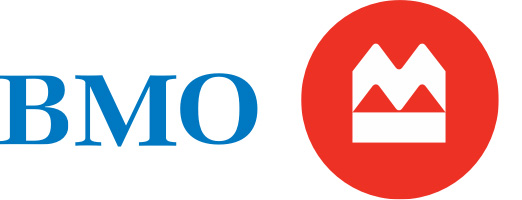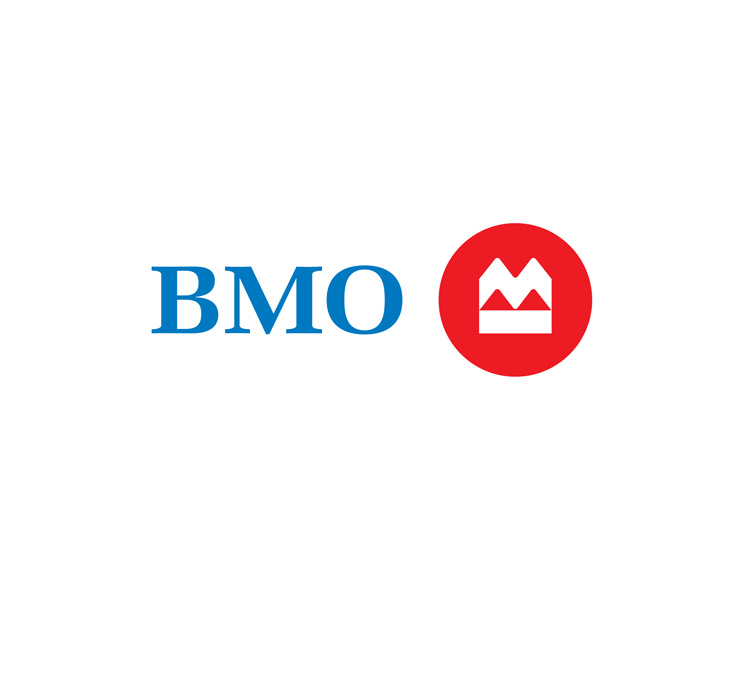
Fraud at the Dealership: How to Spot It, How to Protect Yourself
-
bookmark
-
print

- Keywords:
- fraud


Today's fraudsters are exceptionally thorough and can use the information they gain to trick companies of all types and sizes, including auto dealerships.
Fraudsters employ all types of methods, and they’re constantly evolving their tactics. Here are the six most common types we have come across.
Employment falsification. This includes instances when the customer does not work at the stated employer or has falsified their occupation, job role, time on the job, etc., to fraudulently obtain financing.
Income falsification. This includes cases in which fraudsters inflate their income information or provide falsified documentation, such as paystubs or notices of assessment.
Dealer misrepresentation. This is a case of internal fraud, in which employment, income, down payment or vehicle value are manipulated to help a customer obtain a car loan.
Identity fraud. In this situation, the thief impersonates someone else to conceal their own identity.
Straw purchaser. This is when a fraudster persuades an individual with good credit to use their name for a car loan on behalf of the fraudster, usually in return for cash, material gain or a cut of the sale proceeds when the vehicle is sold.
Financial elder abuse. The misuse, misappropriation, or exploitation of an older adult’s funds and assets without that person’s knowledge or full consent.
What Can You Do To Protect Your Dealership?
Often fraudsters leave clues that something is amiss. Being aware of certain red flags can help you spot potential fraud before it’s too late, such as the following.
Documentation. Fraudulent paperwork often includes multiple fonts, addresses that appear to have been altered, misspellings and grammatical errors.
Customer identification. Review the identification that has been presented to you. Is it valid? Does the person on the identification look like the person in front of you? Does the birthdate and address match the application? Do the signatures from the identification match the documentation that the customer signed?
Know your client. Verify that the customer is physically present when validating their identity.
Does the customer make sense? If a customer is from out of town, does it make sense that they would visit your dealership for the specific vehicle they’re trying to purchase? Does the life stage of the customer align with their stated income, type of employment or credit report history?
Behavior. Does that customer agree to all the extra vehicle features without asking any questions? Do they seem nervous? Is the customer accepting a high rate for more financing? Do they seem to be in a hurry to drive the vehicle and leave the dealership right away?
What To Do If You Suspect Fraud?
Fraud not only leads to potential financial impacts, it can harm a dealership’s reputation as well. After spotting any red flags, dealers can always:
-
Request additional ID or documentation
-
Verify addresses, phone numbers and employment details from a customer before submitting a loan application
-
Contact the employer by phone
-
Contact your financial institution Representative
Fraudsters are successfully creating new ways to hack systems, obtaining pertinent information. It’s important to stay educated on the different types of dealership fraud, how they occur and the many tools at your disposal that can help prevent them.
Paul Hunsley
Vice President & Head of Retail Automotive Finance
Today's fraudsters are exceptionally thorough and can use the information they gain to trick companies of all types and sizes, including auto dealerships.
Fraudsters employ all types of methods, and they’re constantly evolving their tactics. Here are the six most common types we have come across.
Employment falsification. This includes instances when the customer does not work at the stated employer or has falsified their occupation, job role, time on the job, etc., to fraudulently obtain financing.
Income falsification. This includes cases in which fraudsters inflate their income information or provide falsified documentation, such as paystubs or notices of assessment.
Dealer misrepresentation. This is a case of internal fraud, in which employment, income, down payment or vehicle value are manipulated to help a customer obtain a car loan.
Identity fraud. In this situation, the thief impersonates someone else to conceal their own identity.
Straw purchaser. This is when a fraudster persuades an individual with good credit to use their name for a car loan on behalf of the fraudster, usually in return for cash, material gain or a cut of the sale proceeds when the vehicle is sold.
Financial elder abuse. The misuse, misappropriation, or exploitation of an older adult’s funds and assets without that person’s knowledge or full consent.
What Can You Do To Protect Your Dealership?
Often fraudsters leave clues that something is amiss. Being aware of certain red flags can help you spot potential fraud before it’s too late, such as the following.
Documentation. Fraudulent paperwork often includes multiple fonts, addresses that appear to have been altered, misspellings and grammatical errors.
Customer identification. Review the identification that has been presented to you. Is it valid? Does the person on the identification look like the person in front of you? Does the birthdate and address match the application? Do the signatures from the identification match the documentation that the customer signed?
Know your client. Verify that the customer is physically present when validating their identity.
Does the customer make sense? If a customer is from out of town, does it make sense that they would visit your dealership for the specific vehicle they’re trying to purchase? Does the life stage of the customer align with their stated income, type of employment or credit report history?
Behavior. Does that customer agree to all the extra vehicle features without asking any questions? Do they seem nervous? Is the customer accepting a high rate for more financing? Do they seem to be in a hurry to drive the vehicle and leave the dealership right away?
What To Do If You Suspect Fraud?
Fraud not only leads to potential financial impacts, it can harm a dealership’s reputation as well. After spotting any red flags, dealers can always:
-
Request additional ID or documentation
-
Verify addresses, phone numbers and employment details from a customer before submitting a loan application
-
Contact the employer by phone
-
Contact your financial institution Representative
Fraudsters are successfully creating new ways to hack systems, obtaining pertinent information. It’s important to stay educated on the different types of dealership fraud, how they occur and the many tools at your disposal that can help prevent them.
What to Read Next.
Why Dealerships Should Tap Into the Booming Used Car Market & How to Get Started
Ryan Ricci, MBA, CFA | May 05, 2021 | Dealer Finance

The COVID-19 pandemic has created pent-up demand for vehicle purchases. With the migration from urban to suburban areas, people need cars more than e…
Continue Reading>Related Insights
Tell us three simple things to
customize your experience






Banking products are subject to approval and are provided in Canada by Bank of Montreal, a CDIC Member.
BMO Commercial Bank is a trade name used in Canada by Bank of Montreal, a CDIC member.
Please note important disclosures for content produced by BMO Capital Markets. BMO Capital Markets Regulatory | BMOCMC Fixed Income Commentary Disclosure | BMOCMC FICC Macro Strategy Commentary Disclosure | Research Disclosure Statements
BMO Capital Markets is a trade name used by BMO Financial Group for the wholesale banking businesses of Bank of Montreal, BMO Bank N.A. (member FDIC), Bank of Montreal Europe p.l.c., and Bank of Montreal (China) Co. Ltd, the institutional broker dealer business of BMO Capital Markets Corp. (Member FINRA and SIPC) and the agency broker dealer business of Clearpool Execution Services, LLC (Member FINRA and SIPC) in the U.S. , and the institutional broker dealer businesses of BMO Nesbitt Burns Inc. (Member Canadian Investment Regulatory Organization and Member Canadian Investor Protection Fund) in Canada and Asia, Bank of Montreal Europe p.l.c. (authorised and regulated by the Central Bank of Ireland) in Europe and BMO Capital Markets Limited (authorised and regulated by the Financial Conduct Authority) in the UK and Australia and carbon credit origination, sustainability advisory services and environmental solutions provided by Bank of Montreal, BMO Radicle Inc., and Carbon Farmers Australia Pty Ltd. (ACN 136 799 221 AFSL 430135) in Australia. "Nesbitt Burns" is a registered trademark of BMO Nesbitt Burns Inc, used under license. "BMO Capital Markets" is a trademark of Bank of Montreal, used under license. "BMO (M-Bar roundel symbol)" is a registered trademark of Bank of Montreal, used under license.
® Registered trademark of Bank of Montreal in the United States, Canada and elsewhere.
™ Trademark of Bank of Montreal in the United States and Canada.
The material contained in articles posted on this website is intended as a general market commentary. The opinions, estimates and projections, if any, contained in these articles are those of the authors and may differ from those of other BMO Commercial Bank employees and affiliates. BMO Commercial Bank endeavors to ensure that the contents have been compiled or derived from sources that it believes to be reliable and which it believes contain information and opinions which are accurate and complete. However, the authors and BMO Commercial Bank take no responsibility for any errors or omissions and do not guarantee their accuracy or completeness. These articles are for informational purposes only.
Bank of Montreal and its affiliates do not provide tax, legal or accounting advice. This material has been prepared for informational purposes only, and is not intended to provide, and should not be relied on for, tax, legal or accounting advice. You should consult your own tax, legal and accounting advisors before engaging in any transaction.
Third party web sites may have privacy and security policies different from BMO. Links to other web sites do not imply the endorsement or approval of such web sites. Please review the privacy and security policies of web sites reached through links from BMO web sites.
Please note important disclosures for content produced by BMO Capital Markets. BMO Capital Markets Regulatory | BMOCMC Fixed Income Commentary Disclosure | BMOCMC FICC Macro Strategy Commentary Disclosure | Research Disclosure Statements




